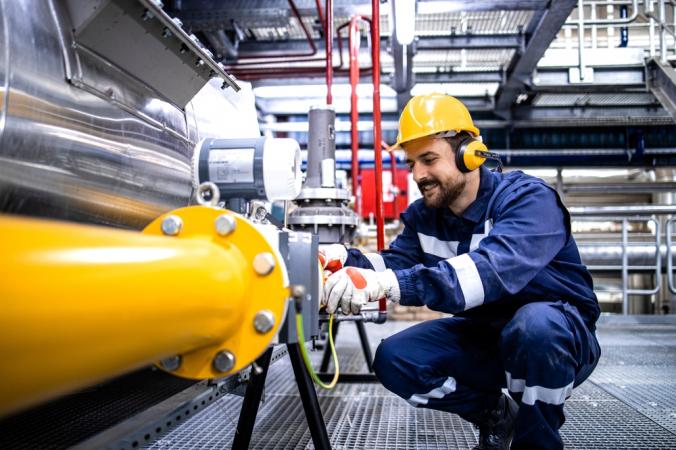Industrial AI Uptake Is Just Getting Started But Majority of Sector is Uncovering New Use Cases, Finds Honeywell Research
While only 17% of AI decision makers around the world have fully implemented their initial AI plans, more than nine in 10 say they are finding unexpected new use cases, whether they are in the prototype, release or scaling stages of AI implementation.
To learn more about the survey results: www.honeywell.co The study also shows that AI leaders are "sold" on AI for industrial applications. Enthusiasm for deeper AI investment is almost universal, with 94% of survey respondents saying they plan to expand their use of AI.
"There is no doubt that AI is at a pivotal moment right now," said Kevin Dehoff, Honeywell's chief strategy officer. "With the proliferation of Gen AI and advanced analytics data sources, industrial AI is poised to grow exponentially, and the opportunities for revenue growth and employee satisfaction are endless."
Key benefits cited by industrial AI leaders
When asked for their thoughts on the impact of AI on industry, nearly two-thirds (64%) of AI leaders cited efficiency and productivity gains as the most promising benefits, with 60% saying AI will improve cybersecurity and threat detection, and 59% reporting better decision-making through the creation of real-time data.
Respondents also cite several other benefits of AI for workers, including:
Increased work flexibility (49%)
Improved job satisfaction (45%)
More time for skill development and creative thinking (44%)
Increased job security (39%)
Skills development is crucial in today's economy, with baby boomers retiring and fewer replacements entering the workforce. AI will allow employers to develop and train workers faster. AI is transforming industry by empowering workers to perform at a higher level, increasing job satisfaction, boosting productivity and addressing skills shortages.
Lucian Boldea, CEO of Honeywell Industrial Automation, offered one direct example: "Tens of thousands of instruments, devices and valves are needed to process and manufacture a product, and many of the parts we supply to our manufacturers require highly experienced technicians to operate and maintain - and experienced technicians are in increasingly short supply. With AI training and AI as an "assistant supervisor," the skills of less experienced technicians can be upgraded more quickly, making them more elite experts at completing tasks. In turn, based on business intelligence and best practices, factories can operate more safely and reliably by dramatically reducing human error."
While the enthusiasm for expanding AI is palpable, there are still challenges to full deployment. More than a third of survey respondents (37%) feel that their C-Suite doesn't fully understand how AI works, and nearly half (48%) say they must constantly justify or request resources to implement AI plans.
Methodology
Honeywell commissioned Wakefield Research to survey AI leaders around the world. The online survey, conducted from April 22 to May 2, 2024 , included 1,600 executives in 12 global markets (USA, Brazil , Canada , China , France , Germany , India , Japan , Mexico , United Kingdom , Kingdom of Saudi Arabia and United Arab Emirates ). Each respondent works in a company with 1,000 or more employees and currently uses AI to automate processes and tasks. All respondents are influencers or decision makers related to the use of AI in their departments or organizations.









